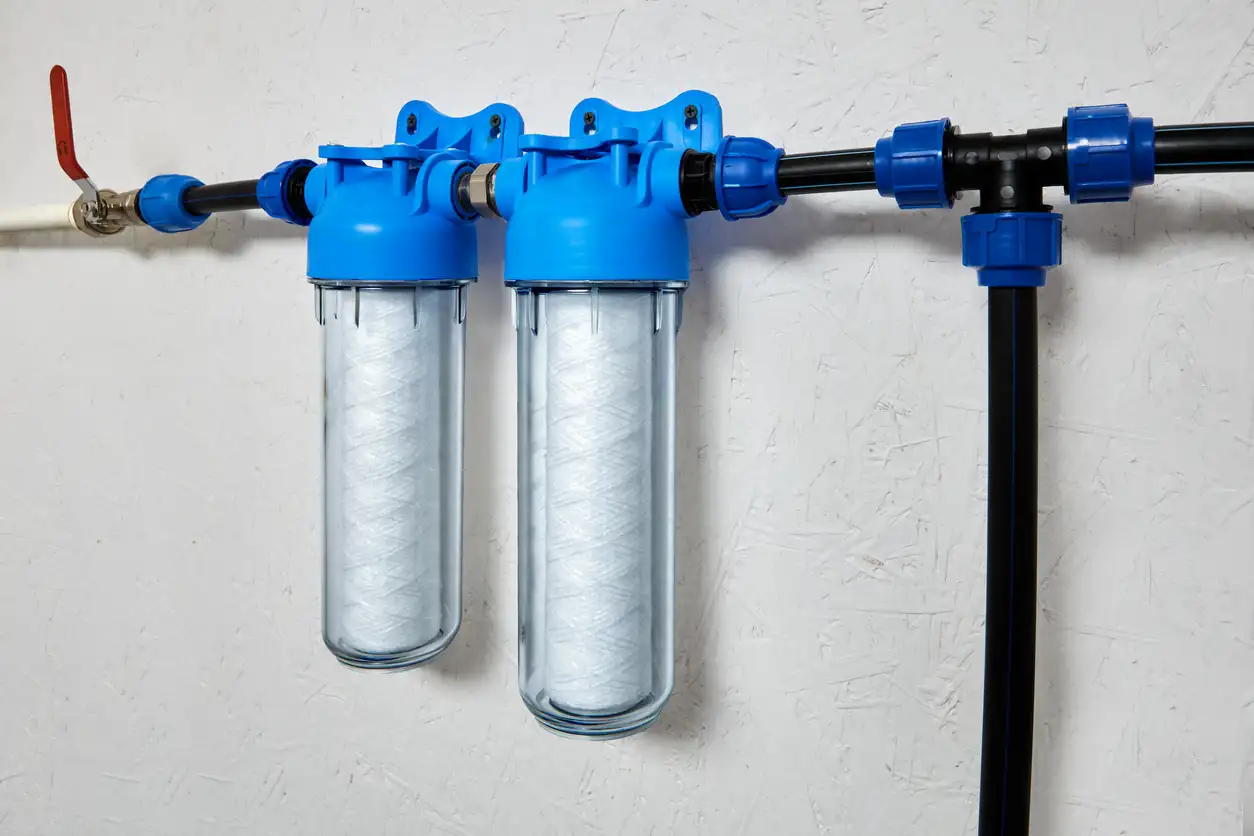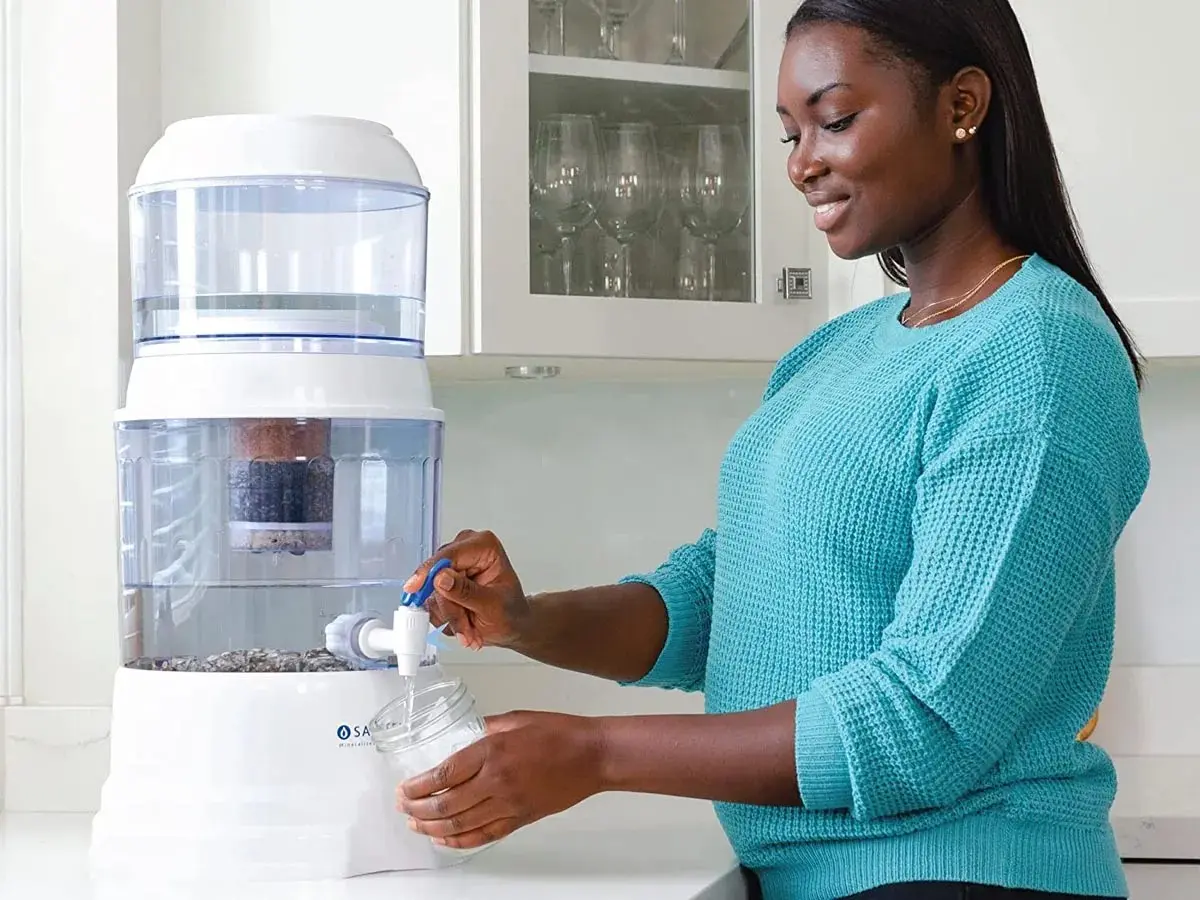Drinking Water Filtration in Malibu, CA
Serving Ventura & Sacramento Counties

Clean, reliable drinking water is a top priority for Malibu homes where coastal conditions, periodic drought, and wildfire smoke can all affect what comes from the tap. This page explains the practical filtration options available in Malibu, CA, the contaminants most commonly addressed here, how systems are selected and installed, and the maintenance and testing schedules that keep your family drinking confidently and appliances running well. AirWorks Heating Air Plumbing offers expert drinking water filtration services designed specifically for Malibu households.
Why filtration matters in Malibu homes
Malibu residents face several local water quality influences: municipal treatment often uses chlorine or chloramine for disinfection which can leave tastes or odors, coastal properties may see higher chloride or salt intrusion in low-lying wells, and seasonal wildfire smoke or ash can temporarily raise organic and particulate levels. Some properties in the hills still rely on private wells where nitrates, bacteria, or sediment can be concerns.
Proper filtration improves taste and odor, removes health-related contaminants, protects plumbing and appliances from scale and sediment, and reduces reliance on bottled water.

Common drinking water contaminants in Malibu
- Chlorine and chloramine: treated municipal water can carry disinfectant tastes and odors
- Sediment and turbidity: sand, rust, and particulate from aging pipes or surface runoff after storms
- Hardness minerals: calcium and magnesium that cause scale buildup on fixtures and appliances
- Volatile organic compounds and pesticides: low levels can occur depending on watershed events and runoff
- Heavy metals: lead and copper are possible where older plumbing exists
- Microorganisms: coliform bacteria or occasional pathogens in poorly maintained private wells
- PFAS and emerging contaminants: increasing concern nationally and tested for during comprehensive screening
- Salt intrusion: a risk for wells and coastal systems in certain areas
Filtration options: point-of-use, under-sink, and whole-house
Point-of-use (POU) systems
- Countertop or faucet-mounted units and small inline filters.
- Best for single-tap needs such as a kitchen sink or refrigerator ice maker.
- Removes chlorine, improves taste, and provides basic sediment and some VOC reduction.
- Low upfront cost and simple installation; ideal when you want filtered drinking and cooking water without changing the whole house plumbing.
Under-sink systems and reverse osmosis (RO)
- Under-sink carbon filters and RO systems provide thorough contaminant reduction, including many dissolved solids, nitrates, fluoride, and some heavy metals.
- RO produces high-purity water for drinking and cooking but generates wastewater and requires periodic membrane changes.
- Good choice when tests show specific dissolved contaminants or when you want near-bottled-water quality at the tap.
Whole-house filtration (point-of-entry)
- Filters installed where water enters the home to protect all fixtures and appliances.
- Typical configurations combine sediment prefilters, catalytic carbon for chloramine removal, and specialty cartridges for hardness or iron.
- Optional UV disinfection addresses bacteria for private wells.
- Best for homes concerned with scale, staining, or consistent taste and odor improvement throughout the house.
How to choose the right system for your Malibu home
Consider these practical selection criteria:
- Start with a water test: accurate results identify exactly which contaminants need treatment.
- Household needs: number of occupants, desired outlets with filtered water, and appliance protection goals.
- Source of water: municipal versus private well determines whether disinfection or bacterial control is a priority.
- Flow rate and pressure: whole-house systems must match home demand without reducing pressure.
- Maintenance tolerance: RO systems and UV lamps require regular service; carbon blocks are lower-maintenance.
- Certified performance: choose systems and filters certified to NSF/ANSI standards for the contaminants you care about.
- Environmental considerations: RO units generate brine and use more water; alternative options may be preferred in drought-prone Malibu.
Typical installation steps
- On-site assessment: technician inspects plumbing, risks like salt exposure, and space for equipment.
- Comprehensive water testing: lab analysis for municipal and private well parameters.
- System selection and design: matching filtration technologies to test results and household needs.
- Permitting and prep (if required): some whole-house or well work may need local permits.
- Installation: mounting filters, connecting prefilters and postfilters, installing RO drain and storage if applicable, and UV where needed.
- Startup and verification: pressure checks, leak test, and post-install water testing to confirm performance.
- Owner orientation: demonstration of system operation and review of maintenance schedule.
Maintenance schedules and filter replacement
Regular maintenance keeps systems effective and extends equipment life. Typical schedules:
- Sediment prefilters: replace every 3 to 6 months, more often after heavy storms or wildfire ash events.
- Carbon cartridges: replace every 6 to 12 months depending on usage and contaminant load.
- RO membranes: replace every 2 to 4 years; monitor TDS output to judge performance.
- UV lamps: replace annually and clean sleeves to maintain disinfection.
- Water softener resin and salt: top off salt monthly and service resin every 8 to 12 years depending on hardness and regeneration frequency.
- Whole-house system tanks and valves: annual inspection recommended.
Watch for signs of replacement need: reduced flow, odors or taste changes, cloudy water, or a rise in TDS. Keep records of filter ages and test results for predictable upkeep.
Water quality testing services and frequency
- Baseline testing: full panel when planning a system to identify target contaminants.
- Post-install verification: confirm the installed system is removing targeted contaminants as promised.
- Annual checks: basic panels for hardness, chlorine, pH, and bacteria for wells; more comprehensive testing every 1 to 3 years for heavy metals and emerging contaminants.
- Event-driven testing: after wildfires, heavy storms, or plumbing work test for sediment, bacteria, and organic contaminants.
Testing types include basic in-home checks (TDS meters, hardness strips) and certified lab analyses for regulatory-grade results.
Benefits of investing in filtration for Malibu homes
- Health and peace of mind: targeted removal of contaminants that matter to your household.
- Better tasting water: improved flavor encourages hydration and reduces bottled water use.
- Appliance protection: reduced sediment and scale lengthen life of water heaters, dishwashers, and coffee makers.
- Local readiness: systems designed for Malibu address coastal salt exposure, seasonal ash, and municipal disinfectants for reliable year-round performance.
- Environmental impact: less single-use plastic when families switch to filtered tap water.
Final Thoughts on Water Filtration in Malibu
Choosing the right drinking water filtration solution in Malibu begins with a science-based water test and a clear understanding of household priorities. Whether you want a single under-sink RO for pristine drinking water or a whole-house system that improves every tap while protecting your plumbing, a properly specified and maintained system delivers reliable, better-tasting water tailored to Malibu conditions. AirWorks Heating Air Plumbing also provides maintenance plans, financing options, and a special offer so Malibu homeowners can enjoy clean water with confidence and long-term value.
Refresh Your Home with Clean Water Confidence
Experience safer, cleaner, and better-tasting water for your family. AirWorks Heating Air Plumbing provides expert drinking water filtration systems designed for Malibu homes. Contact us today to schedule your installation and enjoy the peace of mind that comes with professionally filtered water.


